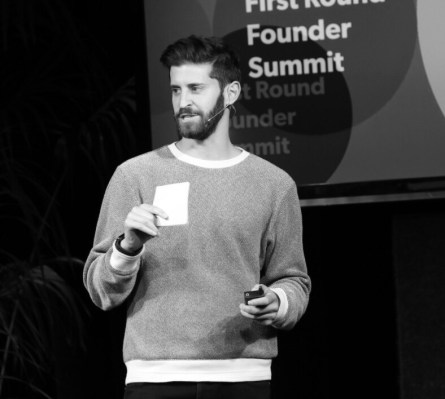Collaborative Fund emerged on the scene nearly 10 years ago to fund seed-stage and, as time passed, early-stage startups, many of them in New York, where the firm is based.
Apparently, the firm has ambitions to do more later-stage investing, too. It just brought aboard Ian Friedman, former co-head of Goldman Sachs Investment Partners, Venture Capital & Growth Equity, as a general partner.
We spoke yesterday with Friedman, a Canadian who graduated from the University of Western Ontario before heading to sunny LA to work for the Boston Consulting Group. After that, he moved to Bain Capital in Boston, followed by a stint at Stanford to get his MBA, where he was recruited by Goldman to work in New York, where he still lives.
Says Friedman, “I always had a passion for investing,” an interest he says that ties to afternoons spent discussing finance with his dad, who’d “pull me close to the computer screen to show me something and educate me.” (His dad also suggested to his then-teenage son the classic investing book “Common Stock and Uncommon Profits,” first published in 1958. Maybe it’s no surprise that Friedman would later become the co-chief investment officer of Stanford’s student investment fund.)
Because Goldman is Goldman, Friedman couldn’t talk in great detail about his tenure with the firm, though he says that he and former colleague Christopher (“Topher”) Dawe managed to convince the bank to create a $1.25 billion growth equity fund funded by Goldman clients for them to plug into Series B and later-stage startups back in 2014. Among the unit’s deals: fintech software company Plaid, which just sold to Visa for $5.3 billion; the streaming company Spotify, which now trades publicly; Rothy’s, the fast-growing direct-to-consumer shoe company; and ThredUp, the 10-year-old fashion resale marketplace, which closed on $100 million in funding last August.
Friedman was a little circumspect about some of his plans at Collaborative Fund, declining to discuss what check sizes he’ll be writing or whether Collaborative Fund will be announcing a new fund soon. (The firm announced its fourth and most recent fund, a $100 million vehicle, in the spring of 2018.)
But Friedman did tell us what he’s looking for based on what he has seen.
First, he stressed that at Goldman, he learned that revenue isn’t always the “best proxy for risk,” and that he is often looking at other metrics as “signals to suggest how much traction a company has and how much customer love exists.” Among other clues, Friedman looks for “customer dependency, and how truly mission-critical a product or service is and therefore its degree of embeddedness, so we can figure out risk to its existing revenue streams.”
Friedman also said that at Goldman, he looked hard at the unit economics of a company’s sales force. “Some companies might have just a few million dollars of revenue, but they’ve achieved that” owing to the tenacity of the CEO and CTO, who are doing most of the selling. “In those cases, if our capital allowed them to build [that sales unit], we saw that as fuel for the fire.” When it comes to consumer startups, Friedman says that some of what he’s looking for instead is “high gross margins, high repeat rates, a high degree of virality, with most customers coming through organic channels — that gets [me] excited even if the company’s revenue is still only in the single digits or low teens.”
Friedman is just seven days into his new job, so he didn’t have new investments to chat about just yet, but it’s worth noting that he’s thesis-driven and plans to focus on business models that he knows well, where “I’ve done a lot [of deals] and tried to be a real student of what it takes to win,” including marketplaces, e-commerce, subscription digital media, fintech, SaaS and API businesses.
He also said that he doesn’t plan to support Collaborative’s current portfolio companies alone, but find startups outside the firm that look like they’re about to break away.
As for whether he sees any kind of slowdown in the later-stage investing world, owing either to SoftBank’s woes or well-funded companies that now look to have raised too much, he suggested the opposite is true, that companies are raising defensively and probably will be for some time.
“There’ve been a lot of massive funds raised by phenomenal investors over the last year or two, and that capital has to be put to work. Because there’s a lot of macro uncertainty owing to the upcoming presidential election and political tensions and the 10-year bull market,” investors do have a focus on ensuring their best companies are “well-capitalized to weather any storm.”
They’re also being realistic about it, suggested Friedman. “Some of these are flat and sometimes down rounds” right now. It all “depends on the state of the companies.”
